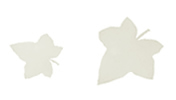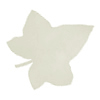|
Insomnia
& Sleep Problems
by Gillie Whitewolf
Ever
find yourself watching the clock racing towards
the dreaded morning alarm? spend the nights tossing
and turning? counting flocks of sheep to no avail?
Everyone suffers from the odd sleepless night during
their lifetime. Stress, overwork, not enough physical
activity, jumpy legs, digestion problems, poor diet,
pollution, an uncomfortable bed, seasonal changes,
even the moon phase can all contribute to sleep
problems and prevent us from drifting off to the
land of zzz's...
In
today's hectic society the majority of people find
little time to relax. I mean really relax
- not just slumped on a couch in front of the TV,
but actually switching off and relaxing. Letting
your mind wind down, turning off the TV or computer,
resting your ears, eyes and brain from the constant
barrage of [mostly useless] information. Research
shows that taking an hour out to yourself before
retiring to bed prepares the body and mind for sleep,
thus enhancing your chances of a peaceful, restful
night.
A warm evening bath is a wonderful way to relax.
Make the experience as indulgent as possible - lanterns
/ candles instead of electric lights, a warm environment,
warm towels to climb into afterwards, maybe even
some peaceful music in the background, and try to
ensure that you won't be disturbed. Enjoy this moment
- create a space you can relax in and allow yourself
that time!
Herbal Baths
The two most well known herbs / oils which would
enhance the bathing experience are Lavender and Chamomile, and
both are gentle enough for children and adults alike.
If you're using the essential oils in the bath dilute
them first in carrier oil [almond, olive, jojoba
etc..] or milk, this helps the oils disperse in
the water, and avoids a film of essential oils forming
on the surface. Generally
speaking, for an adult, up to 6 drops of essential
oil/s should be sufficient for a full bath. For
children between 5-12 use no more than 3 to 4 drops
essential oil mixed with a carrier.
The dried or fresh herbs can also be added to the
bath, either directly or brewed up as a strong infusion
which can be added to the bath water.
Other herbs you might like to try in the bath include Hops, Lemon Balm and Marjoram.
Other essential oils include Neroli, Benzoin, Marjoram, Pathchouli
and Ylang-Ylang.
A Herbal foot or hand bath can be just as effective
- the footbath in particular helps to draw blood
away from the head.
Herbal
Infusions
Caffeine can play a large part in causing restless
nights - if this is the case for you try to avoid
that extra cup of tea or coffee late at night and
try a herbal cuppa instead :
Lemon Balm has an excellent reputation as
a bedtime herb - soothing to the stomach and a gentle
sedative with a lovely zesty flavour.
Chamomile is another successful favourite
for a bedtime cuppa - try blending it with Lemon
Balm.
Valerian Root makes a rather foul smelling
and tasting infusion, but an extremely effective
sedative. Valerian should
not be taken with any other sleep inducing drugs,
and I would recommend it for only very occasional
use. [Try blending it with other more pleasant tasting
relaxants mentioned in this list].
Catnip [as long as you can keep the cats
off it] is a gentle sedative and like Chamomile
and Lemon Balm is suitable for restless children. Catnip contains sedative
chemicals similar to those found in Valerian, but
is certainly a more pleasant tasting alternative!
Passionflower has been used for centuries
as a remedy for insomnia, particularly sleeplessness
caused by anxiety or nervous tension. If you suffer
from anxiety, emotional worries or nervous tension
try blending Passionflower with Lemon Balm.
Hops produces a slightly bitter tasting tea,
and is well known for its sedative qualities on
the whole nervous system. I tend to stick with Hops
as a bath or sleep pillow addition, but it does
work very well as a sleepy cuppa - although it is
best not to take Hops internally if you suffer from
depression.
Elderflower makes a delicious, delicately
fragranced infusion which helps relax the nerves.
Limeflower is another one to mention for a delicately flavoured
relaxing herbal cuppa, and is also valuable as an
antispasmodic and sedative to the nerves and digestive
system.
Oil
Burners
Creating a relaxing environment to sit and unwind
in before you retire to bed is one of the most important
steps you can do to ensure a decent sleep. An oil
burner can be used to great effect - as long as
you remember to blow out the candle before falling
asleep! Relaxing oils such as Lavender, Chamomile,
Rose, Neroli, Jasmine,
Ylang-Ylang, Benzoin, Frankincense, Bergamot,
Sandalwood, Patchouli and Violet can all help create
a soothing environment. Choose one or two oils which
you find most comforting and relaxing and add a
few drops to water in a suitable oil burner.
In
The Bedroom
One of the most effective, easy to use and well-known
sleep remedies is Lavender essential oil sprinkled
on the pillow or bedding, or dap a little Lavender
on to the wrist pulse points and forehead / temple.
Another way to include Lavender in the bedroom is
in a sleep pillow - make a sachet or small pillow
and stuff with Lavender herb and add a few drops
of Lavender essential oils. Pop the sachet under
your pillow or hang it on your bedstead and breath
in the relaxing fragrance. Other relaxing herbs
you could include in a sleep pillow include Hops,
Lemon Balm [particularly useful for menopausal women
suffering from nightly hot flushes] Chamomile and
Marjoram. If nightmares are causing the restless
sleep you might like to try including Rosemary in your sleep pillow mix.
In
The Kitchen
Eating a healthy, well balanced diet is not
only essential to your general health and well-being,
but will also improve your chances of a restful
sleep. Junk food and processed foods stuffed full
of additives, preservatives and artificial colourings
is one sure-fire way to send your digestive system
into chaos. Over-indulging or eating rich foods
in the evenings can also cause problems. Many a
sleepless night is caused by poor diet or digestion
problems. Include plenty of fresh fruit and vegetables
in your diet [organic where possible], Smoothies
are easy to make [a blender is useful of course]
and the combinations of fruit and veg are endless
- have fun experimenting with different blends.
Include natural yoghurt, or ice-cream if you fancy
treating yourself [try and find a natural, organic
ice-cream],
Lettuce has a long-standing reputation as a soporific
food. The Romans were particularly keen on it, and
modern research has discovered that it does contain
sleep-inducing compounds. Eat the leaves raw, make
Lettuce soup or drink as an infusion in the evenings.
Oats are an excellent food for ensuring a peaceful
sleep - try muesli, granola or porridge, and instead
of a chocolate bar in your break, try a flapjack.
Oats also make a tasty topping for stewed fruit
or fruit crumbles.
For a bedtime drink try adding a little honey to
mug of warm milk [sprinkle a little cinnamon or
cocoa on to add a bit of luxury], or try one of
the herbal infusions mentioned above.
Non-Herbal
Remedies
Suitable relaxing music can be invaluable in creating
an atmosphere of calm and programming the body to
prepare for sleep. Keep the volume low, and choose
natural sounds such as evening birdsong, gentle
rain or waves, or gentle blues, relaxed jazz, lilting
folk music, or music composed specifically for meditation
/ relaxation. As scientists are beginning to realise
just how effective [and affective] music can be
I read more and more reports on 'listen to classical
music before bedtime' - great if you've chosen Debussy's
"Arabesque no.1" but not so beneficial
if you have chosen Stravinsky's "Rite of Spring".
There are hundreds of suitably soothing classical
music choices, and research has proven some of Mozart's
music to be extremely beneficial at soothing brain
waves. The trick is to find the appropriate piece
- trial and error and a simple love of exploring
the many faces of Classical music will help you
assemble a relaxing evening collection. [Aim for unhurried tempos, 50-60 beats-per-minute
as opposed to the 120 + bpm of clubbing music]!
There
is growing research to suggest that sunlight plays
an important role on our body clocks - sometimes
it can be a case of not enough natural light causing
a lack of energy and a desire to hibernate [as can
be seen most drastically during our winter months],
in others a lack of natural light appears to cause
restless sleep. Research has shown that babies who
are exposed to a few hours of natural daylight during
their waking hours sleep more peacefully than those
exposed to little or no sunlight.
Far too many people spend their days locked in dingy
offices in front of computer monitors with little
or no natural light, and we are constantly bombarded
with artificial light day and night, from lightbulbs
to TV screens - it's hardly a surprise that our
natural body clocks are so confused!
Sleep
is an important and vital part of living - allow
yourself time to relax and re-energise. Creating
your own evening ritual will teach your brain and
body to slow down and prepare for sleep. Relying
purely on sedatives whilst continuing to rush about
like a mad-march-hare-on-speed during your waking
hours is not the answer! Fresh air, plenty of exercise,
a well balanced diet, meditation and time to yourself
will all help in improving your chances of a peaceful,
uninterrupted sleep. So take care of yourself, listen
to your body, and sleep well. Sweet dreams....
The
herbal remedies mentioned in this article are not
intended to replace professional advice. Any medication
you are on should also be taken into consideration
- always check with your healthcare professional
if you are on prescription drugs before taking herbal
remedies. |
|












